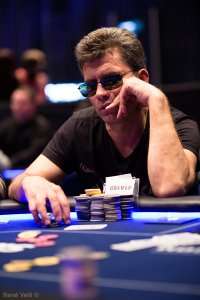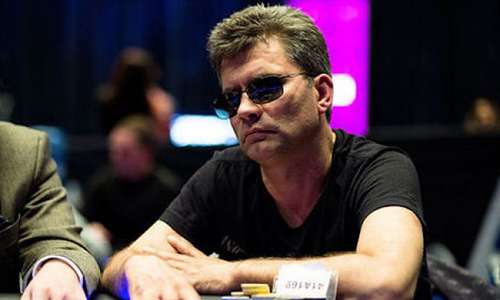WSOP Ends Valeriu Coca Investigation, Releases Prize Winnings
The World Series of Poker and the Nevada Gaming Control Board have concluded their investigation into cheating allegations made against the fifth-place finisher in the 2015 WSOP’s $10,000 heads-up event. The WSOP has announced that winnings of $54,545 had been released to Valeriu Coca, of Moldova, after a months-long investigation into the event. The investigation included a forensic examination of the cards used during at least some of the event’s action, though possibly not all, leaving the matter of Coca’s alleged cheating unlikely ever to be permanently settled.
 In a statement published on the WSOP.com site by the WSOP’s WSOP Vice President, Corporate Communications, Seth Palansky, he confirmed that the investigation had not turned up evidence supporting the allegations. Wrote Palansky, “Once issues were brought to our attention, we immediately commenced an investigation and worked cooperatively with the Nevada Gaming Control Board. The investigation that was performed has now been completed by all parties. At this time, the matter is considered closed and the 5th place finisher in Event #10 [Coca] will now have his funds released for payment.”
In a statement published on the WSOP.com site by the WSOP’s WSOP Vice President, Corporate Communications, Seth Palansky, he confirmed that the investigation had not turned up evidence supporting the allegations. Wrote Palansky, “Once issues were brought to our attention, we immediately commenced an investigation and worked cooperatively with the Nevada Gaming Control Board. The investigation that was performed has now been completed by all parties. At this time, the matter is considered closed and the 5th place finisher in Event #10 [Coca] will now have his funds released for payment.”
The claims against Coca emerged after the unheralded player from Moldova, a small country nestled between Romania and the Ukraine, knocked off a series of highly regarded opponents on his way to the event’s quarterfinals. At least four prominent heads-up players subsequently posted on online discussion boards and social media regarding their suspicions about Coca, who they collectively alleged played repeatedly as he had somehow marked some of the cards used during the heads-up action.
Among those accusing Coca of somehow marking the cards were Connor Drinan, Pratyush Buddiga, Aaron Mermelstein and Matt Marafioti, with a fifth player, Byron Kaversham, asserted by Buddiga to have similar doubts regarding Coca’ play. Coca defeated several of these players on his way to the quarterfinals, where he lost, though not until after possible being tipped off that his opponents were watching him. Kaversham, for example, Coca’s Round 5 opponent, is reported to have taken extraordinary steps to shield his down cards from Coca’s direct view. Coca still beat Kaversham, but lost in the quarterfinals (the next round) in an event that was ultimately won by Keith Lehr.
Coca lashed back at those making the accusations once the matter became public. As he told PokerNews, “This is a fantasy. The players who lost are very good, so they just don’t believe they could lose to me for an honest reason… I have no way of marking cards or any other tricks… This is not gentlemanly, to lose and cry foul. They are not gentlemen.”
Despite that, evidence soon emerged that Coca had been banned from at least one European casino in the past, in the Czech Republic, also for the alleged marking of cards. Slamming Coca as a “convicted fraudster from a Prague casino, Czech gaming writer Martin Kuchařík publicly accused Coca of having received that casino’s lifetime ban after being discovered subtly bending the aces and kings in the decks in play, and alleged that several other European casinos had been investigating Coca’s play at the tables.
Coca issued a heated statement denying those allegations as well, claiming that he had instead been booted from the Prague casino for being an “advantage roulette player.” The roulette claim came despite no known roulette system offering such an edge to advantage players being known to mankind, at least in the presence of a balanced wheel and honest floor staff.
While the WSOP decision announcing the end of its investigation into Coca results in the release of his winnings, it’s important to realize that the WSOP’s actions represent more of a “not guilty” than an “innocent” in the matter; the statement from the WSOP merely notes that the investigation itself failed to produce actionable evidence. It’s not that difficult for a player to foul additional cards in a deck being used if he suspects he’s being watched, and it’s not at all clear that the WSOP was even able to identify the decks used during Coca’s Day 1 matches in Event #10, from which most of the allegations originated.
That saw cuts both ways. Just as Coca’s accusers aren’t likely to be satisfied with the outcome of the WSOP’s investigation, Coca himself will always be under a cloud of suspicion at major poker events.




















COMMENTS